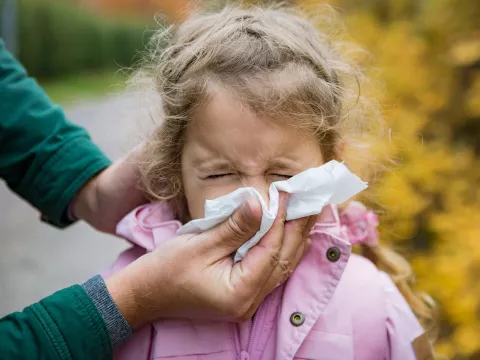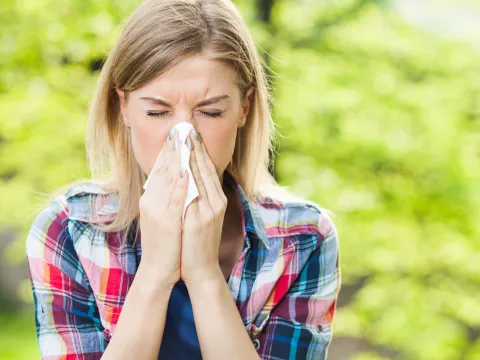- AdventHealth Centra Care

Is it the flu, a sinus infection or the common cold? This time of year, AdventHealth Centra Care physicians typically see a rise in all three illnesses. In fact, the number of reported cases of upper respiratory infection (URI), also known as the common cold, are up across all locations. It's often difficult to tell if an illness is just a viral cold, influenza or if it is complicated by a bacterial infection of the sinuses. A URI is any type of infection of the head and chest that is caused by a virus. It can affect people in different ways including the nose, throat, sinuses and ears.
There are over 200 viruses that cause URIs. Symptoms include:
- Stuffy and/or runny nose
- Sore throat
- Watery eyes
- Sneezing and coughing
- Congestion
- Muscle aches
- Low grade fever (99º to 100ºF)
- Loss of appetite
- Lethargy
URIs can be spread person-to-person, through the air by a sneeze or cough, or by coming into contact with an object that an infected person has touched. So wash your hands regularly, and avoid touching your eyes, nose and mouth because this is where the viruses infect. Because a URI is viral as opposed to a bacterial infection, antibiotics are not effective. Although there is no cure, steps may be taken to lessen the severity of the symptoms associated with a URI.
- If you have a slight fever, headache or muscle aches, take acetaminophen or ibuprofen.
- For a sore throat, taking lozenges (adults), gargling salt water, or a popsicle might help with the pain.
- Have a stuffy nose? Taking a decongestant or saline nose drops can ease the suffering.
- If your nose is runny, use a mild antihistamine.
- For a cough, adults can use a cough medication or cough drops. The best way to care for children is to keep them well hydrated.
Colds are the most common trigger of asthma symptoms in children who suffer from the illness, and can also lead to bronchitis, sinusitis, ear infections and more. Go to your nearest Centra Care location if breathing becomes difficult, or if your symptoms don’t improve or get worse after 7 to 10 days.
Recent Blogs
-

Pruebas de Influenza Cerca de Mí
Encuentre tratamiento contra la gripe cerca de Sanford ahora. Obtenga atención urgente para los síntomas de la gripe con pruebas y tratamiento de la gripe en una de nuestras ubicaciones de Sanford...
-

Tratamiento Rápido y Efectivo Contra La Influenza en Orlando, Florida
Este diciembre de 2022, ya estamos bien entrados en la temporada de gripe, y parece ser una de las temporadas de gripe más graves en más de una década.
